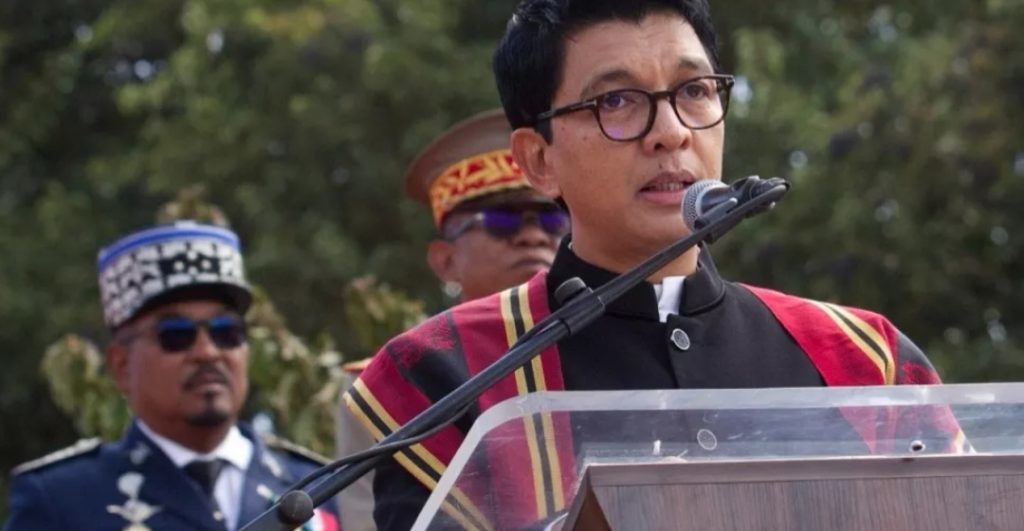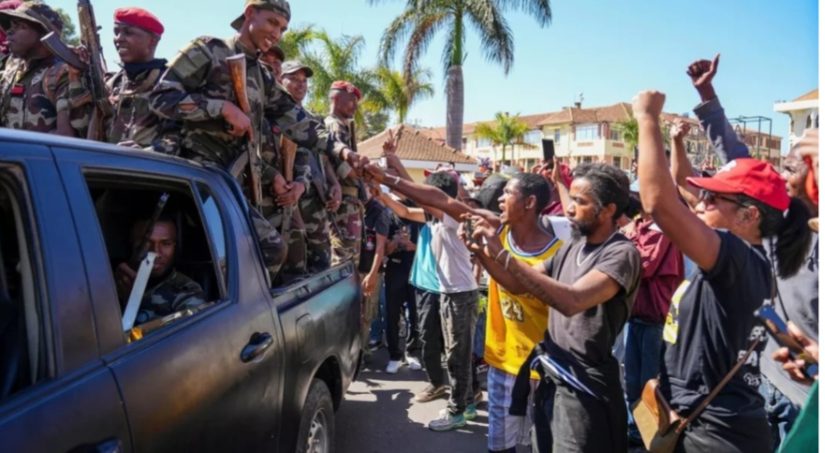
Ofure Akhigbe
The President of Madagascar, Andry Rajoelina, has reportedly fled the country after an elite military unit joined anti-government protesters in what appears to be a coup.
According to opposition lawmaker Siteny Randrianasoloniaiko, Rajoelina “ran away” from Madagascar on Monday, October 13, following days of violent protests and growing defections within the armed forces. The reports emerged shortly before the president was scheduled to address the nation in a televised broadcast at 7 p.m. local time (1600 GMT).
Rajoelina’s office had earlier announced that his speech would air on state television and radio, but it remains unclear if he was still in the country. The government confirmed that “an attempt to seize power illegally and by force” was underway but provided no further details on the president’s whereabouts.
French state radio, RFI, reported that Rajoelina was evacuated on a French military plane after reaching an agreement with French President Emmanuel Macron. However, the French Embassy in Antananarivo denied any French military intervention, stating that France “fully respects Madagascar’s sovereignty and territorial integrity.”
The crisis escalated on Saturday, October 11, when soldiers from the elite CAPSAT military unit accompanied demonstrators to a square in the capital, Antananarivo, calling for Rajoelina and several government ministers to resign. The CAPSAT unit, which helped Rajoelina seize power in a military-backed coup in 2009, declared that it had assumed control of all armed forces in the country.
Colonel Michael Randrianirina, a CAPSAT commander, said the army had “responded to the people’s calls” but denied staging a coup. He confirmed that one of his soldiers was killed during clashes with security forces over the weekend. Despite reports of gunfire, no major fighting was observed in Antananarivo, where soldiers on armored vehicles waving national flags were greeted by cheering crowds.
Madagascar, a nation of about 31 million people, has been engulfed in three weeks of escalating anti-government protests that began on September 25. Initially driven by youth groups protesting against water and electricity shortages, the demonstrations have since expanded to include grievances over poverty, corruption, and the rising cost of living.
The protests, spearheaded by a movement known as “Gen Z Madagascar,” have reportedly left at least 22 people dead and dozens injured, according to the United Nations. The government disputes those figures. Civic organizations and trade unions have also joined the demonstrations, prompting authorities to impose nightly curfews in the capital and several other cities.
The U.S. Embassy in Madagascar has advised American citizens to shelter in place due to what it described as a “highly volatile and unpredictable” situation. The African Union has urged all parties, both civilian and military, to exercise “calm and restraint.”
Madagascar, a former French colony, has a long history of political instability since gaining independence in 1960. The 51-year-old Rajoelina first came to power after the 2009 coup that ousted then-President Marc Ravalomanana. He was later elected president in 2018 and re-elected in 2023 in a poll boycotted by opposition parties.
As of press time, Rajoelina’s location remains unknown, and the situation in Antananarivo continues to evolve.

